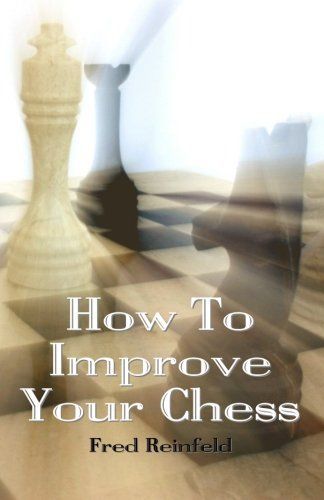
How to Improve Your Chess
You lose games from time to time, right? Like all chessplayers. Naturally you want to improve your play. Is there something special or unique about your problem? I don't think so. Only a few of us can become masters; yet the rest of us can achieve more than respectable playing strength with a reasonable amount of application. The first big step in improving our play is to become aware of the things we do wrong, the bad moves we make. Many of us could never reach that point without personal lessons because we could not previously find in books the kind of material that would enable us to spot our own weaknesses. That is a pity, for while chess is a lot of fun, win or lose, it's more fun when you win! In my contacts with thousands of chessplayers for over twenty years, I have often watched them grope and drift and become discouraged in their efforts to improve their game. It was from these observations that the notion of concentrating on the Eight Bad Moves took shape. Again and again I have seen, in the course of teaching and playing and discussing, that most players commit certain typical errors.I started to think about these errors and how to describe themin such a way that the reader would exclaim, "At last! That's just why my games go wrong! If only I'd realized this sooner!" This book has been "on my mind" for several years. What held me back somewhat in writing it, was the influence of the teachers and psychologists who have been insisting that a "negative" approach is all wrong. I finally concluded that my emphasis on the Eight Bad Moves was not really negative at all. Before a player can begin to improve, he must clear away the faults that have been spoiling his games and depriving him of well-earned victories. In your study of these games and ideas you will not only discover the Eight Bad Moves and how to overcome the faults that produce them, you will also encounter a wealth of new ideas and techniques which you will enjoy using in your own games.